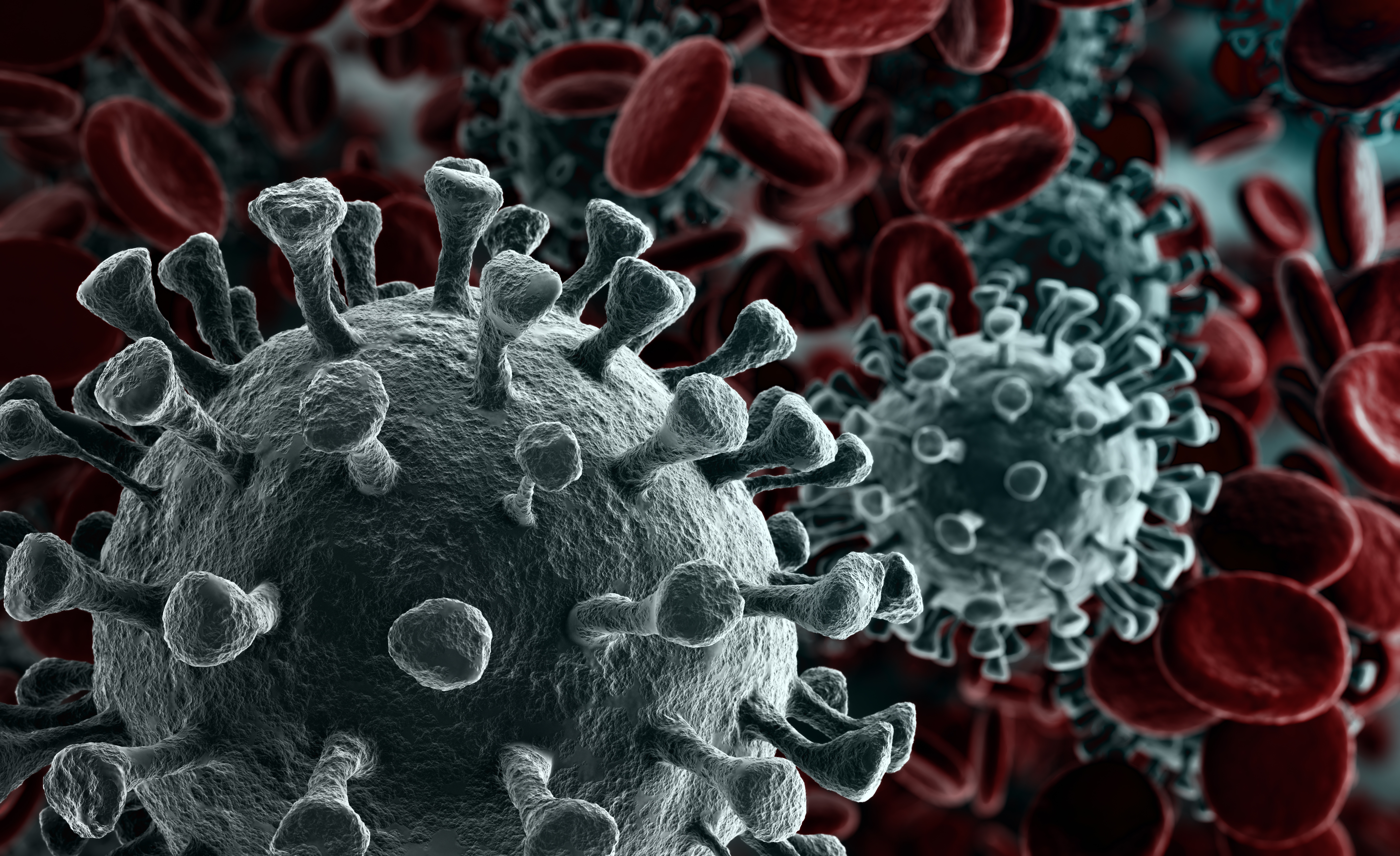Have you ever wondered about the tiny organisms that have a massive impact on human health? We're talking about viruses. If your curiosity is piqued, you're in the right place to explore a fascinating and impactful career as a virologist.
This guide is your ticket to understanding the world of virology, from what it takes to become a virologist to the qualifications you'll need and even how you can make an impact through this career. Let’s dive into the microscopic world of virology and uncover the journey to becoming a virologist.
Jump to:
- What is Virology?
- The Path to Becoming a Virologist
- Qualifications and Skills Needed
- Opportunities for Further Study and Specialisation
- Is a Virologist a Doctor?
- Virology in the Job Market
- A Day in the Life of a Virologist
- Virology vs Microbiology
- Is Virology a Good Career?
- Entrepreneurship in Virology
- Professional Development and Networking
What is Virology?

Virology is the study of viruses – submicroscopic, parasitic particles of genetic material contained in a protein coat – and virus-like agents. It's a branch of science that is essential to understanding how viruses affect humans, animals, and plants. This knowledge helps in developing vaccines, treatments, and strategies to combat viral infections.
Virologists are scientists who specialise in this field, dedicating their careers to studying various aspects of viruses, including their genetics, evolution, and how they infect cells.
The Path to Becoming a Virologist
Becoming a virologist requires a blend of education, passion, and dedication. Here's how you can start your journey:
- Educational Foundation: Your path begins with a solid foundation in sciences. A bachelor's degree in biology, microbiology, or a related field is the first step. This provides the essential knowledge of basic biological principles and laboratory techniques.
- Virologist Degree: Pursuing further education, such as a master's degree in virology or a related area, deepens your understanding. It's where you start specialising in virology, studying viruses in greater detail.
- Doctoral Research: For those aspiring to lead research projects or teach at the university level, a PhD in virology is essential. This is your opportunity to contribute original research to the field.
- Practical Experience: Hands-on experience in a laboratory is invaluable. Internships or laboratory positions during or after your studies will enhance your skills and understanding of virology in practice.
Qualifications and Skills Needed
To thrive as a virologist, you'll need a mix of qualifications and skills:
- Academic Qualifications: A strong academic background in virology and related fields is essential. This includes degrees and any additional certifications that demonstrate your expertise.
- Analytical Skills: Virologists must be able to design experiments, analyse data, and draw conclusions from research findings.
- Attention to Detail: Working with viruses requires precision and meticulous attention to protocols to ensure accurate results and safety in the lab.
- Communication Skills: Whether writing research papers or explaining complex concepts to non-scientists, clear communication is key.
Opportunities for Further Study and Specialisation

After obtaining a basic degree in virology, there are numerous paths for further study and specialisation that can enhance your expertise and career prospects. Here are some options to consider:
- Post-Doctoral Research: A post-doc is a common next step for PhD graduates, offering the chance to conduct advanced research under the supervision of experienced scientists. This is a time for deepening your research skills and focusing on a specific area of interest within virology.
- Fellowships: Fellowships provide unique opportunities for specialised training and research. They can be found in academic institutions, research centres, and even within industry settings, focusing on areas such as viral genetics, vaccine development, or emerging infectious diseases.
- Specialised Fields within Virology: Virology itself is vast, with specialisations ranging from medical virology, which focuses on disease and treatment, to molecular virology, exploring the structure and function of viruses. Identifying a niche that resonates with your interests can lead to a fulfilling career dedicated to specific aspects of virology.
Is a Virologist a Doctor?
While some virologists hold medical degrees and work on clinical aspects of viruses, not all are medical doctors. Many virologists have PhDs and focus on research rather than patient care.
Virology in the Job Market
The demand for virologists has seen a significant increase, especially in light of recent global health challenges. Virologists work in various settings, including research institutions, pharmaceutical companies, public health organisations, and academia.
- Virologist Job: Roles can range from research and development to teaching and diagnostic work.
- Virology Salary: Salaries vary based on location, experience, and the type of work. In the UK, starting salaries for virologists in the NHS can be around £31,365, with potential growth to £73,664 or more for experienced roles.
A Day in the Life of a Virologist

A typical day for a virologist is far from mundane, filled with a variety of tasks that require both intellect and passion. Here’s a look at the daily lives of those who dedicate their careers to understanding and combating viruses.
Morning: Designing and Conducting Experiments
The day often begins in the laboratory, where virologists begin the meticulous design and execution of experiments. This might involve preparing cultures of cells to be infected with viruses, setting up assays to measure the effects of viruses on these cells, or experimenting with potential antiviral compounds.
The goal is to understand how viruses operate, how they affect living organisms, and how we can prevent or treat viral infections. This phase requires a deep understanding of virology, creativity in experiment design, and a methodical approach to carrying out procedures with precision.
Midday: Analysing Data and Problem Solving
After conducting experiments, virologists spend time analysing the collected data. This could involve using statistical software to interpret results, comparing them with previous studies, or discussing findings with colleagues to gain further insights. It’s a critical part of the process, where data tells the story of how viruses interact with hosts, replicate, and respond to treatments.
This time is also used for troubleshooting experiments that didn’t go as planned, requiring problem-solving skills and sometimes, a bit of detective work to understand what went wrong and how to adjust for future experiments.
Afternoon: Attending Seminars and Collaborating
Education is a continuous journey for virologists. Many afternoons are spent attending seminars, webinars, or workshops where they can learn about the latest research and developments in the field. These sessions provide an opportunity to stay updated with cutting-edge science and to engage with the global virology community.
Collaboration is another key aspect of their day, whether it’s discussing research projects with colleagues, mentoring students, or planning joint studies with other scientists. These interactions foster a rich environment for learning, sharing, and pushing the boundaries of what is known about viruses.
Evening: Writing Research Papers and Grant Proposals
The dissemination of knowledge is a crucial part of a virologist's role. Evenings are often dedicated to writing research papers, reviews, or grant proposals. This involves translating complex experimental results and theories into clear, concise, and informative text that can be published in scientific journals.
Writing communicates findings to the broader scientific community and plays an important role in securing funding for future research. It requires a clear understanding of the subject, the ability to write persuasively, and a commitment to advancing the field of virology.
Beyond the Lab: Making a Global Impact
The impact of a virologist’s work extends far beyond the laboratory. By understanding viruses, developing treatments, and contributing to public health policies, they play a role in combating diseases and improving health outcomes worldwide.
Each day’s work is a step towards new vaccines, better diagnostics, and strategies to prevent future pandemics. It’s a career that offers the unique satisfaction of knowing that your scientific pursuits have the potential to save lives and change the world.
Virology vs Microbiology

While virology is a branch of microbiology that focuses specifically on viruses, microbiology covers a broader spectrum of microorganisms, including bacteria, fungi, and protozoa. Virology is more specialised, with a focus on understanding viruses exclusively.
Is Virology a Good Career?
Virology offers a rewarding career path with the potential to make significant contributions to science and society. Whether you're interested in research, teaching, or working in the pharmaceutical industry, virology provides diverse opportunities to explore.
Entrepreneurship in Virology
With a solid foundation in virology, you can explore a range of entrepreneurial paths that contribute to healthcare, research, and even the commercial sector. Here's a closer look at some of the avenues:
- Biotech Startups: Starting a biotechnology company focused on virology can lead to the development of new vaccines, antiviral drugs, or diagnostic tools. This path requires a blend of scientific knowledge and business acumen but offers the chance to directly contribute to combating viral diseases.
- Consultancy Roles: Virologists with extensive experience and knowledge can offer their expertise as consultants to pharmaceutical companies, research institutions, and healthcare providers. This role involves advising on virology-related projects, from research and development to public health strategies.
- Developing Virology-Related Products or Services: Entrepreneurs in virology can also create products or services that support the field, such as educational tools, laboratory equipment, or bioinformatics services that help in virus research and analysis.
Professional Development and Networking
For aspiring virologists, engaging in professional development and networking is key to building a successful career. Here's how you can get involved:
- Professional Bodies: Joining professional societies such as the American Society for Virology (ASV) or the Society for General Microbiology (SGM) provides access to a community of professionals, resources, and opportunities for development.
- Conferences and Symposia: Attending virology conferences is an excellent way to stay updated on the latest research, meet fellow virologists, and present your work. Events like the International Congress of Virology offer invaluable learning and networking opportunities.
- Journals and Publications: Keeping abreast of the latest research by reading and contributing to reputable virology journals, such as the Journal of Virology or Virology Journal, will not only expand your knowledge but also enhance your visibility in the field.
Recommended for you!
Best SellersDiscover the World of Virology with Centre of Excellence
At Centre of Excellence, we're dedicated to supporting your curiosity and career aspirations through our comprehensive Virology for Beginners course. This course is designed to make the intricate world of viruses approachable and engaging, ensuring you grasp the essentials of virology with ease and confidence.
What You'll Explore
- Foundations of Virology: Dive deep into the basics of virology, understanding the nature of viruses, how they operate, and their impact on living organisms.
- Practical Knowledge and Skills: Gain hands-on insights into the methodologies used in virology research, including how to conduct experiments and analyse data.
- Global Impact of Viruses: Learn about the role of virology in public health, vaccine development, and the prevention of viral outbreaks.
Your Invitation to Learn and Grow
In our mission to make transformative education accessible to all, we're thrilled to offer the Virology for Beginners course at a special discounted rate of £29, saving you over £100!













